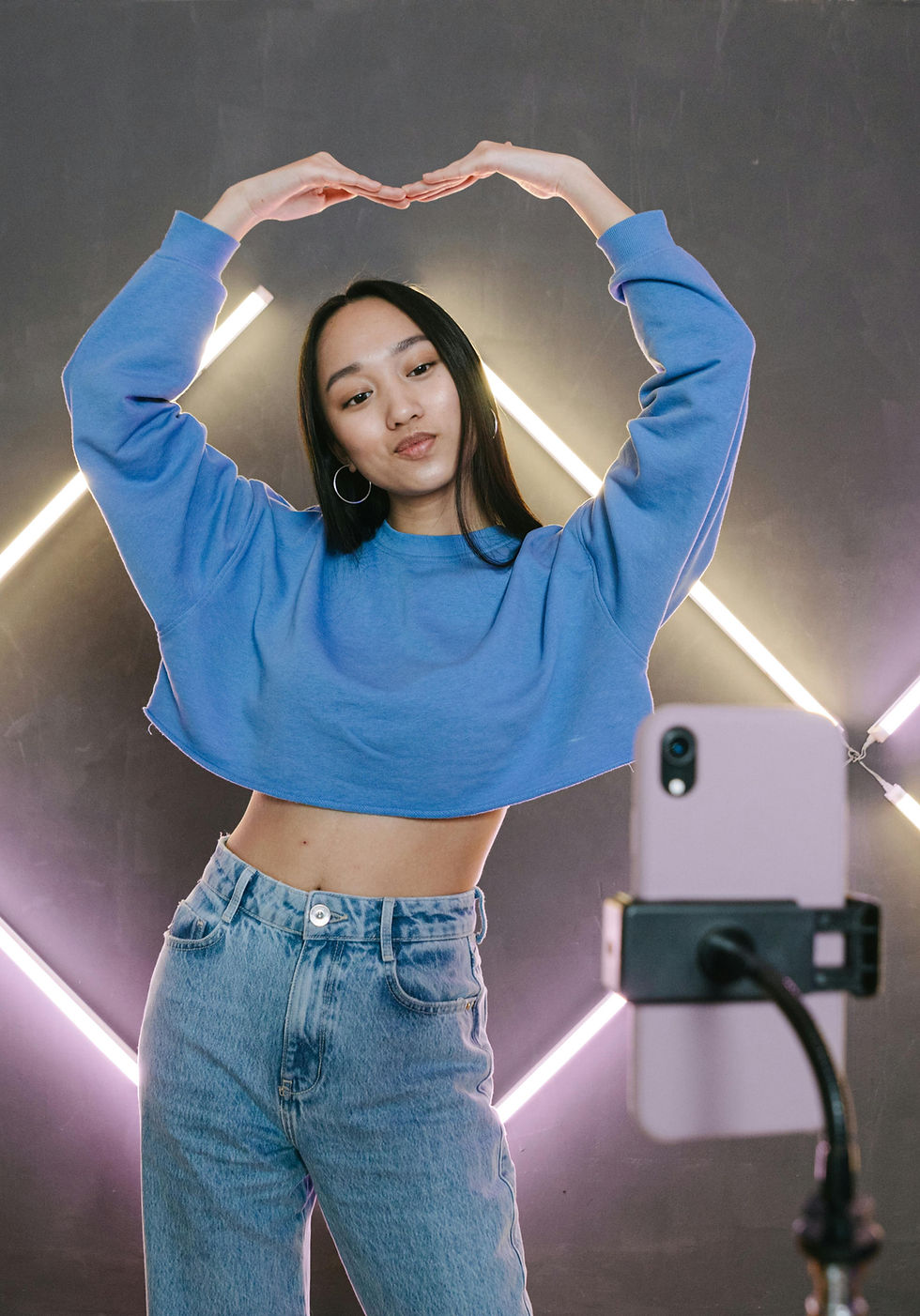Living "to" or living "through": a reflection on contemporary escapism
- Anshi Purohit
- Sep 22, 2025
- 4 min read
Our need for escapism has gone to extreme lengths.
77 percent feel social media has impacted their self-image. 89 percent compare themselves with others on social media and report intense dissatisfaction. Over half are compelled towards perfection when they scroll. Teenagers are wading into a sinkhole marked with a neon label.
Why do we feel the need to flee reality? Is this loneliness paradox a problem that can be mitigated despite society's rigid structure?
For some, living in an echo chamber is a conscious choice. We have adopted an inner monologue, a default comment on any striking Instagram post: I'm living through you. I'm experiencing your happiness through the screen. To an extent, teens are aware that social media has negative effects on body image, mental health, and cognitive development. Our feeds represent our interests and humor, but they project insecurities. I mean, who am I kidding; I learned about these adverse effects years ago, but I "doomscroll" whenever I'm facing a tough week. My brain is often at odds with what will work best for my well being, and my surroundings don't help much either.

Everything is idealized. From the items we buy to the food we consume and even the way we structure our downtime, some digital peddler is handling life in a better way. These (role?) models contribute to our curated social media feeds and earn a front-and-center spot on our vision boards. Consumer culture, hustle culture, complaining culture—let’s talk about comparison culture.
In the United States alone, 320 million people use social media, and that number increases each year. Hustle culture is expected, and side hustles are revered. Everyone is now an entrepreneur to make ends meet. Reconnecting with your inner child is a marketable webinar lurking on a wellness business.
As per a study conducted by the University of North Carolina Chapel Hill, most students living on their campus reported using social media as an outlet for escape rather than building connections. These results were reproduced on multiple campuses and student communities. Scrolling is a salve, or at least a barrier from a noisy outside world. Today’s world is a stressful one to say the least. From political polarization to tense global affairs, an unsteady job market and balancing socialization with strained finances; turning to each other for guidance might be a breaking point.
So, why influencers? After all, they are people whose lives we can only peer into for about thirty seconds at a time. Most often, they are standing in a kitchen, studio space, or mingling on the streets of the latest city they’ve traveled to. We trust these individuals because they are up close and strangely personal, which many find comforting. Social media influencers also seem to make complex issues accessible, breaking them into digestible parts. They often serve as political mouthpieces, advertisements, or a way to debunk healthcare misconceptions. Both extremes exist, which is why we should regulate our time spent trusting people separated from us by a translucent screen.

However, influencers are not alone on the technological communication frontier. Enter AI chatbots, avatars, and virtual therapists. At first, I balked at the idea. Then, I clicked through articles and videos online, reading individual stories where a chatbot guided a stressed user through an anxiety attack or depressive episode. One feature discussed the romantic implications an AI relationship had on a few users.
While I assume most claims are exaggerated, certain facts tell a clear story. Anthropomorphized artificial intelligence tools are becoming easier to speak with than human beings. Finding third spaces and just an open slot in our packed schedules has proven beyond challenging. In my experience, finding the time so I can meet with friends is a chore. We schedule events weeks in advance, sending out frantic Google Calendar or Whatsapp messages.

It has become a privilege to care about your well being enough to buy those advertised supplements and wake up at 5am for a lavish workout routine at your local Pilates studio. Mental ease is the new wealth. Flexibility is the new wealth. Only then is one awarded the status to offer advice, "just don't stress, and then you will have a lower blood pressure." Don't we all have the same twenty-four hours in a day?
If we are building a brand for ourselves, it does not need to have its seal on every aspect of our lives. If we are seeking a life built on adventure and community, living vicariously through digital influencers may not land us closer to the goals we are striving so diligently to accomplish.
Does the crisis have a solution that we can solve? It is important for us to acknowledge that our lives cannot compete with a single enhanced digital representation. But in a similar vein, approaching memories and experiences as life to be lived rather than life to be itemized and documented may ease the loneliness. Not all moments need to have external "worth" if they bring us joy. I am not pushing for anti-escapism, because then I am a hypocrite. The world is both overwhelming and paradoxical. And yet, we remain, curious about how we fit into a puzzling universe.
Recommendations for Further Reading
If the subjects I discussed interest you, research further by reading...
The Anxious Generation by Jonathan Haidt and following the Hubermann Labs’ Podcast. Read for fun and read for fulfillment rather than seeking out yet another idealized version of success.





Comments